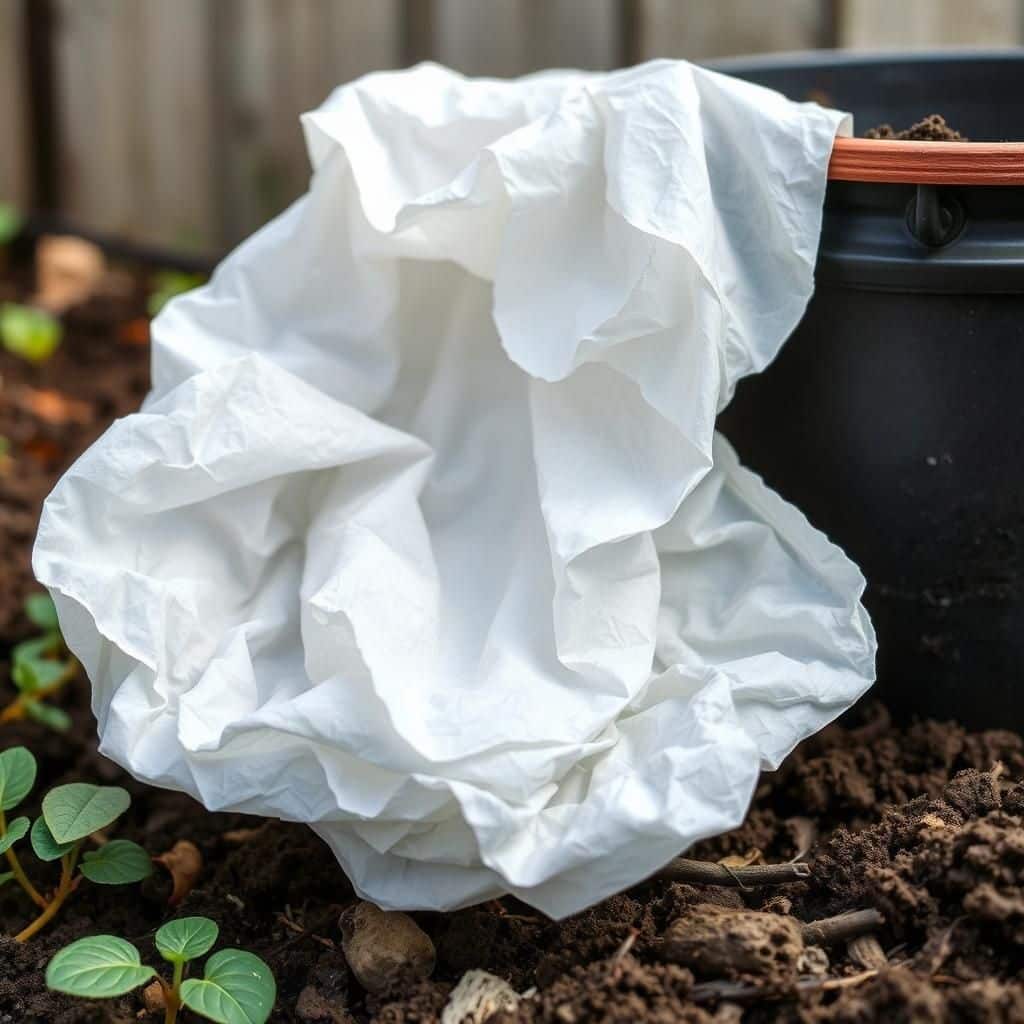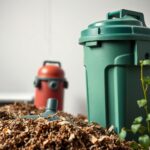Can I Put Dryer Sheets in Compost? Discover the Truth About Composting Dryer Sheets

When it comes to composting, knowing what can and can’t be added to the pile is crucial for creating healthy, nutrient-rich soil. One common question among eco-conscious individuals is whether dryer sheets can be included in compost. While these laundry essentials make clothes smell fresh and soft, their composition raises concerns about their biodegradability and environmental impact. In this article, we’ll explore the truth about composting dryer sheets, examining the materials they contain, their effect on compost quality, and sustainable alternatives that can keep your laundry fresh without compromising your composting efforts.
Can I Put Dryer Sheets in Compost?
When considering whether to put dryer sheets in compost, it is important to recognize that most commercial dryer sheets are not suitable for composting due to their synthetic materials and added chemicals that can be harmful to the composting process. These sheets are often made of polyester or other non-biodegradable substances, which do not break down properly and can lead to environmental concerns. Additionally, the fragrances and softeners used in these products may disrupt the natural balance of microorganisms essential for healthy compost. Therefore, it's advisable to avoid adding dryer sheets to your compost pile and instead opt for more compost-friendly alternatives.
Why Are Dryer Sheets Not Ideal for Composting?
Dryer sheets typically contain a variety of synthetic chemicals and fragrance compounds that can adversely affect the composting process. These components do not decompose effectively and can potentially harm the beneficial microorganisms within the compost. Furthermore, many dryer sheets are made from plastics, which contribute to landfill waste and create environmental issues when introduced into the compost system.
What Are the Alternatives to Dryer Sheets in Compost?
Instead of using dryer sheets, consider using natural alternatives such as wool dryer balls, which help to reduce static and soften clothes without the use of chemicals. You can also use vinegar in the rinse cycle as a natural fabric softener or add baking soda to your wash for deodorizing. These alternatives are not only compost-friendly but also more environmentally sustainable options.
What Can You Compost Instead?
When compiling materials for your compost, focus on organic waste such as fruit and vegetable scraps, grass clippings, leaves, and cardboard. These materials provide the necessary carbon and nitrogen balance needed for efficient composting. Ensure that you are avoiding non-biodegradable items and synthetic substances, as they hinder the composting process.
See also:
Effects of Chemicals in Dryer Sheets on the Compost?
The chemicals found in dryer sheets can disrupt the microbial life in compost, which is vital for breaking down organic matter. Many of these compounds persist in the soil and can lead to poor soil health and reduced fertility. Introducing such chemicals into your compost system is counterproductive and may ultimately impact the quality of the compost you produce.
How to Dispose of Dryer Sheets Responsibly?
If you have used dryer sheets, dispose of them in the trash rather than in your compost bin to prevent contamination. Some brands offer recycling programs or encourage consumers to return their products instead of throwing them away. Checking for local recycling options or looking for brands that are more eco-conscious can help minimize waste and promote more sustainable practices.
| Material | Compostable | Comments |
|---|---|---|
| Dryer Sheets | No | Contains synthetic materials and chemicals. |
| Fruit Scraps | Yes | Excellent source of nitrogen for compost. |
| Vegetable Scraps | Yes | Another great nitrogen source. |
| Grass Clippings | Yes | High in nitrogen; mix with carbon sources. |
| Cardboard | Yes | Break down well; provides carbon. |
Understanding the Composition of Dryer Sheets and Their Impact on Compost
When considering whether to include dryer sheets in your compost, it is essential to understand the materials they are made from and their potential impact on the composting process. Most commercial dryer sheets are made from synthetic fibers and coated with various chemicals that can introduce unwanted substances into your compost. These chemicals can hinder the growth of beneficial microorganisms and may not break down naturally in the compost environment, making them unsuitable for organic composting practices aimed at producing nutrient-rich soil.
What Are Dryer Sheets Made Of?
Dryer sheets are typically composed of a blend of synthetic fibers, such as polyester or polypropylene, along with a coating of fabric softeners and fragrance compounds. These materials are designed primarily for static reduction and aroma enhancement in laundry. The synthetic nature of these fibers means they do not easily break down like organic materials, raising concerns about their effect on the ecosystem of a compost pile.
Are Dryer Sheets Biodegradable?
Most dryer sheets are not biodegradable due to their synthetic components and chemical coatings. While some brands offer plant-based or biodegradable alternatives, the majority of conventional dryer sheets will persist in the environment, contributing to pollution and ultimately defeating the purpose of composting, which is to return nutrients to the soil in a sustainable manner.
See also:
The Effects of Chemicals in Dryer Sheets on Compost
The chemicals present in traditional dryer sheets, such as quaternary ammonium compounds and artificial fragrances, can be detrimental to the microbial activity in compost. The introduction of these hormonal disruptors and artificial additives can compromise the natural microbiome that is necessary for effective composting and nutrient cycling. Thus, they may inhibit the decomposition process and the quality of the finished compost.
Alternatives to Dryer Sheets for Composting
Instead of using dryer sheets, consider alternatives that are compost-friendly and enhance the laundry process without introducing harmful substances. Options like wool dryer balls, which help to reduce static and cling without the need for added chemicals, can be beneficial. Additionally, using vinegar or baking soda in the wash can act as natural softeners, keeping your textiles fresh without compromising compost integrity.
Best Practices for Composting
To maintain a healthy and effective composting system, focus on using organic materials such as fruit and vegetable scraps, grass clippings, and leaves. Ensure a balance between green (nitrogen-rich) and brown (carbon-rich) materials for optimal breakdown. Regularly aerate your compost and monitor moisture levels to support microbial health and accelerate the decomposition process, steering clear of items like dryer sheets that can disrupt these crucial factors.
Questions from Our Readers
Can I put dryer sheets in compost?
No, you should not put dryer sheets in compost. Most dryer sheets are made from synthetic materials that do not break down naturally, which can lead to contamination in your compost pile.
What are dryer sheets made of?
Dryer sheets are typically made from non-woven materials and are infused with various chemicals. These chemicals can include fragrances and softeners, which are not biodegradable, making them unsuitable for composting.
See also:
What happens if I compost dryer sheets?
What are some alternatives to dryer sheets for composting?

If you want to read more articles like Can I Put Dryer Sheets in Compost? Discover the Truth About Composting Dryer Sheets, we recommend you check out our Compost category.
Leave a Reply
Related Articles